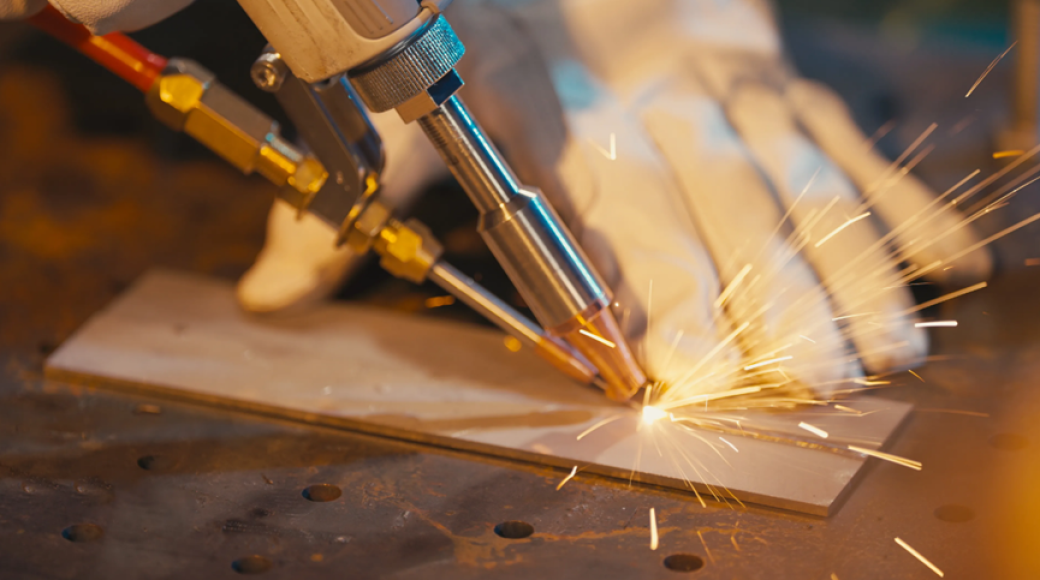Choosing the Right Laser Welding Machine for Your Workshop
By
Mohsin Khan
Fri Aug 22, 2025 to Sat Aug 15, 2026
Timezone : Europe/Paris

Laser welding has revolutionized the metal fabrication and manufacturing industry. Its precision, speed, and reliability make it an essential tool for professionals across sectors. However, not all laser machines are created equal. Selecting the right equipment can dramatically impact your productivity, product quality, and overall efficiency. For those seeking top-tier solutions, the best laser welder offers unmatched performance and reliability.
Why a Laser Welder is Essential
Traditional welding methods often require extensive post-processing, produce inconsistent results, and may cause material deformation. In contrast, a laser welder provides:
-
High precision – Perfect for intricate components and fine materials.
-
Minimal heat distortion – Preserves material integrity.
-
Faster production – Reduces manufacturing time without compromising quality.
-
Automation compatibility – Integrates seamlessly with robotic systems for large-scale production.
These benefits make laser welding indispensable in industries like automotive, aerospace, electronics, and jewelry.
Factors to Consider When Choosing a Laser Welding Machine
Selecting the right laser welder requires careful evaluation of your specific needs. Key factors include:
- Material Type – Different lasers work better on specific metals such as stainless steel, aluminum, or titanium.
-
Power Requirements – Ensure the machine can handle the thickness and type of material you intend to weld.
-
Precision Needs – High-end models provide micron-level accuracy for detailed projects.
-
Production Volume – Choose equipment that matches your workflow, whether it’s batch production or continuous operation.
-
Ease of Use – User-friendly interfaces reduce training time and improve efficiency.
For professionals seeking reliable performance, investing in the best laser welder ensures long-term value and consistent results.
Advantages of Laser Welding
Laser welding provides several advantages over traditional welding techniques:
-
Non-contact process – The laser beam doesn’t physically touch the material, reducing contamination.
-
High repeatability – Ideal for repetitive tasks in industrial production.
-
Clean welds – Minimal spatter and no need for additional finishing in most cases.
-
Versatility – Capable of welding dissimilar metals and complex shapes with ease.
By using a laser welder, manufacturers achieve higher quality welds while optimizing operational efficiency.
Applications of Laser Welders
Laser welding machines are used across various industries due to their adaptability and precision:
-
Automotive – Welding small components and critical parts with minimal distortion.
-
Electronics – Connecting tiny components where accuracy is critical.
-
Medical Devices – Fabricating surgical tools and implants with extreme precision.
-
Jewelry & Craft – Creating fine designs without damaging delicate materials.
With the right machine, businesses can expand their capabilities and increase output quality.
Tips for Maintaining Your Laser Welder
Proper maintenance ensures longevity and consistent performance. Follow these key tips:
-
Regular Cleaning – Keep lenses and optics free from dust and debris.
-
Cooling System Maintenance – Prevent overheating and ensure efficient operation.
-
Software Updates – Keep your machine’s firmware up to date for improved performance.
-
Routine Calibration – Maintain precision by checking alignment and beam quality.
Investing in maintenance is as important as selecting the best laser welder.
Conclusion
Laser welding has transformed modern manufacturing by providing precision, speed, and efficiency. Choosing the right equipment is crucial for maximizing results and ensuring long-term reliability. For professionals looking to elevate their workflow, a laser welder offers unmatched performance and versatility, making it a smart investment for any workshop or production line.

Date and place
Fri Aug 22, 2025 to Sat Aug 15, 2026
Timezone : Europe/Paris
